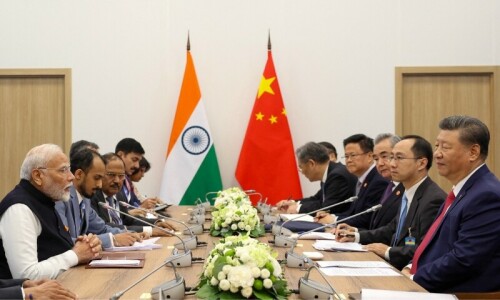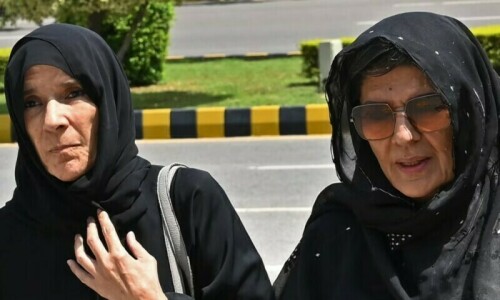ISLAMABAD: The government is expected to revoke tax concessions that disproportionately benefit high-earning individuals over the middle-class workforce, Dawn learned on Monday.
The International Monetary Fund (IMF) has advised the government to treat salaried employees’ incomes similarly to that of individuals (non-salaried) as personal income. However, the Federal Board of Revenue (FBR) disagrees and believes that both incomes cannot be considered equally.
If salary and non-salary incomes are deemed personal incomes under the IMF’s direction, the tax burden on the salaried class will increase significantly.
The revenue measures devised thus far are Rs500 billion for the budget 2024-25. However, the actual quantum of revenue measures will be agreed upon after receiving the IMF’s final projections about the revenue collection target. Unlike the traditional practice of working at the FBR headquarters, the Ministry of Finance does all of the computations for tax recommendations.
FBR mulls measures to raise Rs500bn more in 2024-25
According to FBR forecasts, autonomous revenue collection (based on GDP growth and inflation) will exceed Rs11.50 trillion in FY25. In addition, the federal government will consult with the IMF before deciding on revenue measures. In the previous budget, the government announced revenue measures totalling Rs415bn. The FBR has suggested raising the tax exemption limit for the salaried class to Rs1.2m in 2024-25.
However, this request is then amended downward to Rs900,000 from the existing exemption limit of Rs600,000, with the demand made based on increasing inflation.
The FBR has also discussed the workings of the pension tax with the IMF. The IMF aims to match the salary slab to the income of pensioners. However, the FBR’s activity is confined to the pensions of federal government employees. The federal government employees’ pension is estimated to be worth around Rs700bn. The FBR has objected to introducing a salary slab for pensioner income and has proposed an alternative mechanism for taxing richer pensioners.
In the private sector, large companies provide pensions to their employees. “There has been no final decision on this so far,” a tax official told Dawn. He stated that the finance ministry is discussing pension-related tax changes with the IMF. However, the FBR calculated no actual revenue impact of tax on pensions.
The elimination of exemptions will also be addressed in a prior consultation with the IMF, according to the official, who added that the FBR had given all data on possible revenue after these exemptions are withdrawn. The IMF has asked FBR to collect taxes from traders and wholesalers, who are currently not contributing to tax collection.
No agreement has been achieved to increase regulatory tariffs on imports. The IMF typically does not suggest import duties because its primary focus is on sales tax and income taxes, particularly withholding taxes. Currently, the sales tax exemption exceeds Rs1.2 trillion. However, the government will face a difficult decision to revoke exemptions for food, international agreements, and pharmaceutical products. However, a few things, such as insecticides and solar panels, may be subject to sales tax.
At the same time, the government would raise existing withholding tax rates while also introducing new ones, such as reviving the tax on cash withdrawals from banks, to raise maximum revenue. Furthermore, the finance ministry is considering imposing a tax on the import of exempted raw materials while increasing tax rates on existing ones.
The PTI government removed the raw material tax to stimulate exports and revitalise the country’s industrialisation.
Published in Dawn, May 28th, 2024
Correction: A previous version of this story erroneously stated the FBR forecasted autonomous revenue collection to be Rs1,150 trillion in FY25; the correct amount is Rs11.50 trillion. The error is regretted.













































Dear visitor, the comments section is undergoing an overhaul and will return soon.